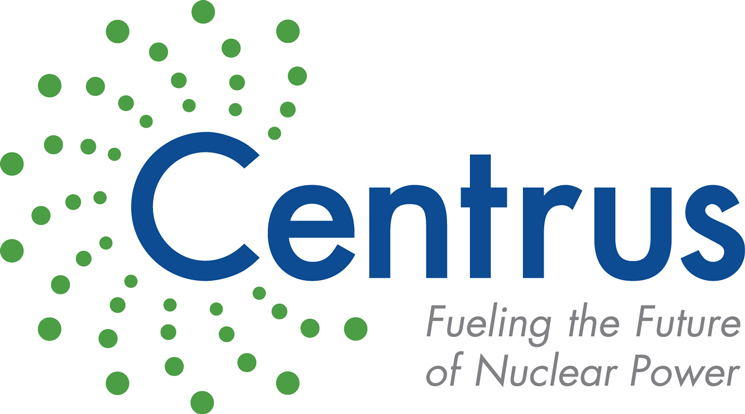The U.S. Department of Energy has just announced that it will award a contract to American Centrifuge Operating LLC (ACO), a subsidiary of Centrus Energy Corporation. The contract is for a demonstration of a method for production of high-assay low-enriched uranium (HALEU). The DoE said that ACO is the only company able to carry out the requirements of the contract.
Current nuclear power plants burn low-enriched uranium which contains less than five percent fissile uranium-235. Many of the designs being explored for advanced nuclear reactors require the use of more highly enriched uranium with five to twenty percent uranium-235 enrichment.
The HALEU Demonstration Program has two primary objectives. The first objective is the creation of a cascade of sixteen AC-100M centrifuges to produce nineteen and three quarters percent HALEU by October 2020. The second objective is to demonstrate that US-origin enrichment technology can produce HALEU. The DoE will be provided with a small amount of HALEU for research and development. The contract is expected to extend from January of 2019 to December of 2020. It includes an option for extension for an additional year.
The DoE notices says that only U.S.-origin technology can be used to produce HALEU for use in any advanced civilian or defense-related reactor application. The DoE requires that the contractor be both U.S.-owned and U.S.-controlled because of “the sensitive nature regarding access to and operation of US-origin enrichment technology.”
The AC-100M centrifuge was designed and constructed by ACO. The AC-100M is the only existing uranium enrichment technology that meets the criterion for the DoE contract. ACO and Centrus Energy both satisfy the DoE contract ownership and control criteria. ACO also has a license with the U.S. Nuclear Regulatory Commission which will allow it to meet the schedule laid out in the contract. ACO subleases a facility from the DoE at Piketon, Ohio. The facility is specifically designed for uranium enrichment.
The NRC issued the ACO license for the construction and operation of a uranium enrichment commercial plant at Piketon in 2007. The plant was constructed, and a cascade of centrifuges was operated for three years to demonstrate the long-term reliability of the enrichment technology before commercial operation. Operation of the facility halted in 2016 because ACO was unable to secure funding to move on to commercial operation.
Ohio Senator Rob Portman said that the DoE will invest one hundred and fifteen million dollars in the HALEU Program over the next three years. He said that the DoE contract announcement was a “milestone” for the Piketon site. He added that “Getting Piketon back to its full potential benefits the skilled workforce here, the surrounding local economy, and strengthens national energy and defense security.”
AOC told an interviewer that “If America wants to be competitive in supplying the next generation of nuclear reactors around the world, we need an assured, American source of high-assay, low-enriched uranium to power those reactors. We stand ready to work with the Department [of Energy] to get the proposed project under way as quickly as possible.”
At present, there are no facilities in the U.S. that can produce commercial quantities of HALEU. The Nuclear Energy Institute (NEI) has called for the development of national nuclear fuel cycle infrastructure in the U.S. to support the development of advanced reactors. The NEI president said, “DOE's investment is a significant starting point in the HALEU fuel infrastructure. We appreciate [Energy] Secretary Perry's attention to this urgent matter and look forward to working with DOE and Congress to ensure the US can compete globally to design and deploy advanced reactor technology.”
